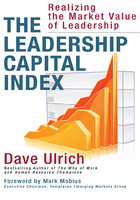
Intellectual Agility, Resilience, and Grit
In one founder-led company, investors who were interested in moving to professional management conducted interviews to help pick a new president. One of the candidates had been involved in a project that laid out some avenues of future growth. He was an advocate of the analytics and findings of this project and often spoke of it to the potential investors. When asked to discuss findings of other qualified research projects for the future of the company, this candidate continually returned exclusively to his personal project and findings. He was not able to incorporate the other studies in his view of the company. While his project might have enormous viability, the investors concluded that he did not display the cognitive flexibility desirable in a new president.
In traditional assessment centers, one of the exercises is to present a business problem that candidates should solve with data that lead them to a conclusion. Then the assessors systematically present additional data to discern how well the candidate assimilates new information into an existing cognitive framework. Moving too quickly, easily losing confidence in the original diagnosis—these could be signs that someone may prove to be a vagabond leader who lacks a consistent focus. On the other hand, moving too slowly and not adapting to new information could be a sign that someone would be pigheaded on the job, unable to adapt to new information.
As it turns out, it is less important to track the leader’s IQ or even EQ than to track the leader’s ability to learn, be resilient, demonstrate grit, or have a growth mindset. Almost every investor my colleagues and I interviewed commented on the importance of ability to learn. Here are some of their comments:
 Find out how leaders think. Under tough questions, consider not only whether they have answers, but also how they respond to the questions. When asked awkward questions, do they face into them or hide from them?
Find out how leaders think. Under tough questions, consider not only whether they have answers, but also how they respond to the questions. When asked awkward questions, do they face into them or hide from them?
 Most leaders know their weaknesses; they have experienced them over the years. The real question is whether they can learn to overcome them.
Most leaders know their weaknesses; they have experienced them over the years. The real question is whether they can learn to overcome them.
 Are leaders willing to face bad news and what is not going well? Are they willing to face their limitations and failures and learn from them?
Are leaders willing to face bad news and what is not going well? Are they willing to face their limitations and failures and learn from them?
 Do leaders have the ability to learn and adapt when receiving new facts?
Do leaders have the ability to learn and adapt when receiving new facts?
 How do leaders think and process information? How flexible are they in addressing problems? Are they locked in? What is their cognitive flexibility?
How do leaders think and process information? How flexible are they in addressing problems? Are they locked in? What is their cognitive flexibility?
 Do they learn? How do they handle mistakes? Do they try to hide from a mistake? Do they try to blame others or the context? Do they admit it and move on? Do they face into it and learn from it? If they fail to deliver on promises they make, what did they do?
Do they learn? How do they handle mistakes? Do they try to hide from a mistake? Do they try to blame others or the context? Do they admit it and move on? Do they face into it and learn from it? If they fail to deliver on promises they make, what did they do?
These investor comments reinforce the research on the importance of leaders' learning to learn and being resilient. Learning agility—the ability and willingness to learn from experience and experiments, and subsequently apply that learning under new conditions—has been identified as the single best predictor of long-term leadership success. Agile learners are quick thinkers who take initiative, exhibit curiosity by asking why and how, make fresh connections, acquire and use rules and principles, seek personal feedback, and think broadly about business problems.
Agile learners are quick thinkers who take initiative, exhibit curiosity by asking why and how, make fresh connections, acquire and use rules and principles, seek personal feedback, and think broadly about business problems. Enlightened trial-and-error outperforms the planning of flawless intellects, or as David Kelly, head of IDEO product development, said, "Fail early and fail often; it is better than failing once, failing at the end, or failing big.”
Enlightened trial-and-error outperforms the planning of flawless intellects, or as David Kelly, head of IDEO product development, said, "Fail early and fail often; it is better than failing once, failing at the end, or failing big.”
When things go wrong, learning leaders are resilient. They face into the problem to learn from a mistake, demonstrate willingness to apologize and own up to an error, and turn insights from the past into actions for the future.
Possible indicators:
 How does the leader handle failure? How resilient is the leader?
How does the leader handle failure? How resilient is the leader?
 How committed is the leader to learning? How able is the leader to accept new ideas or approaches?
How committed is the leader to learning? How able is the leader to accept new ideas or approaches?